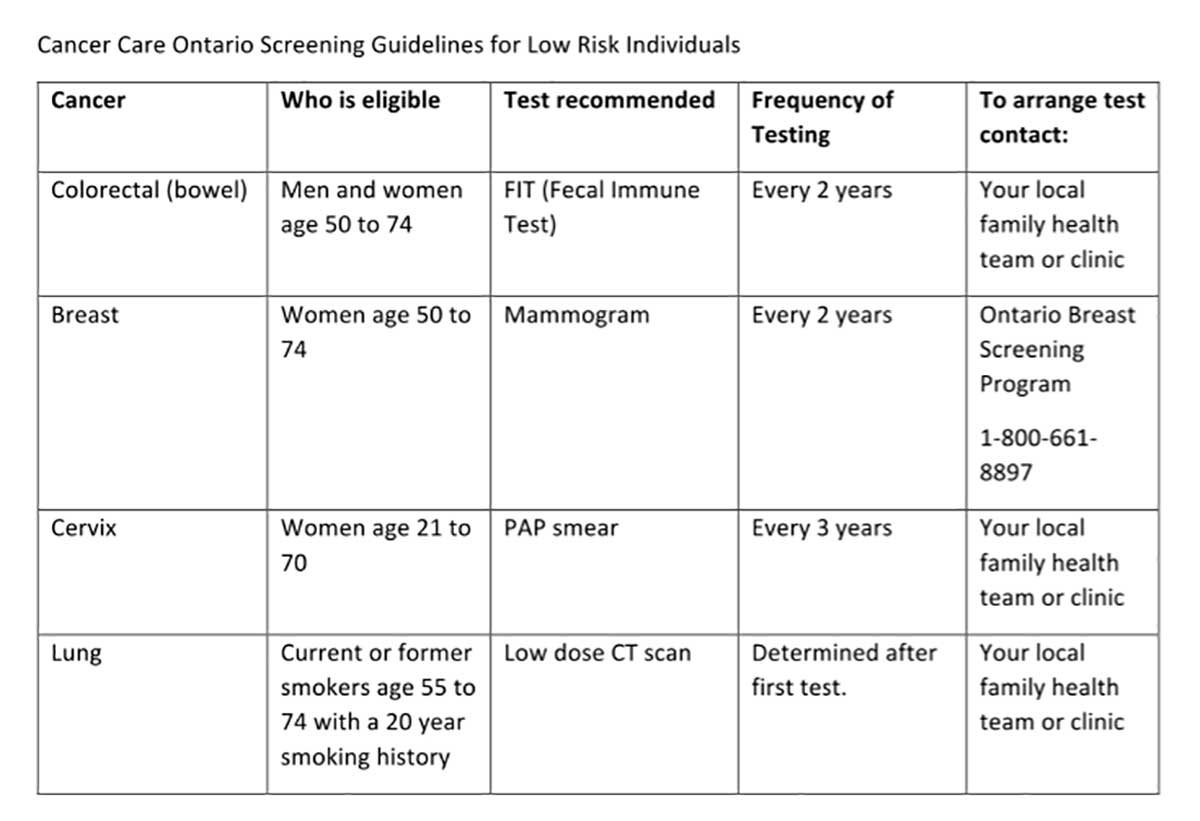EDITOR’S NOTE: Your Health Matters is penned monthly by the doctors of the Little Current Medical Associates.
Screening
by Dr. Ken Barss
In medicine, screening is a process where people without symptoms undergo a test to diagnose a condition before it causes symptoms. In theory, finding a disease early should result in earlier treatments and improve health outcomes. An example is having your blood pressure checked. If you are found to have elevated blood pressure and it is treated properly, you will have a lower risk of heart attack and stroke.
Unfortunately, there are some drawbacks to screening. Many screening tests produce “false positive results” which means that the test is positive, but you don’t have any disease. This can create a lot of worry and can lead to unnecessary procedures, which can sometimes be harmful. For example, screening for lung cancer with CT scans often find abnormalities that ultimately may be found to be benign, but a biopsy procedure is required to be certain.
The best screening tests are ones where the disease is detected early, an effective treatment is available for the disease, and the risks from screening, subsequent investigation and treatment are outweighed by the benefits of early treatment. Finding screening tests and proving their benefit is challenging and requires large, long-term research trials
Cancer is one disease for which researchers have been trying to find good screening tests. There is no one test that can detect all cancers. Some tests that were previously thought to be beneficial for cancer screening, such as PSA testing for prostate cancer, have been called into question because of the potential harms of screening and subsequent procedures.
Currently Cancer Care Ontario recommends screening for three types of cancer: bowel (colorectal), breast and cervix. The recommended screening tests for these cancers have been shown to be beneficial with minimal risk of harm. As well there is a pilot project for lung cancer screening available for current or former smokers through Health Sciences North. See the table below for recommendations from Cancer Care Ontario for screening in low risk individuals. Please note if you have certain high risk factors for these cancers, such as a family history, a different screening procedure may be recommended. Please discuss with your health care provider.
Finally consider making an appointment for a periodic health exam. This type of appointment has replaced the “annual physical.” During this appointment, your health care provider will review screening procedures and discuss what you can do to improve and maintain your health.
If you have any questions, call or drop by your local family health team or clinic. In Little Current, call the Northeastern Manitoulin Family Health Team at 705-368-2450.





